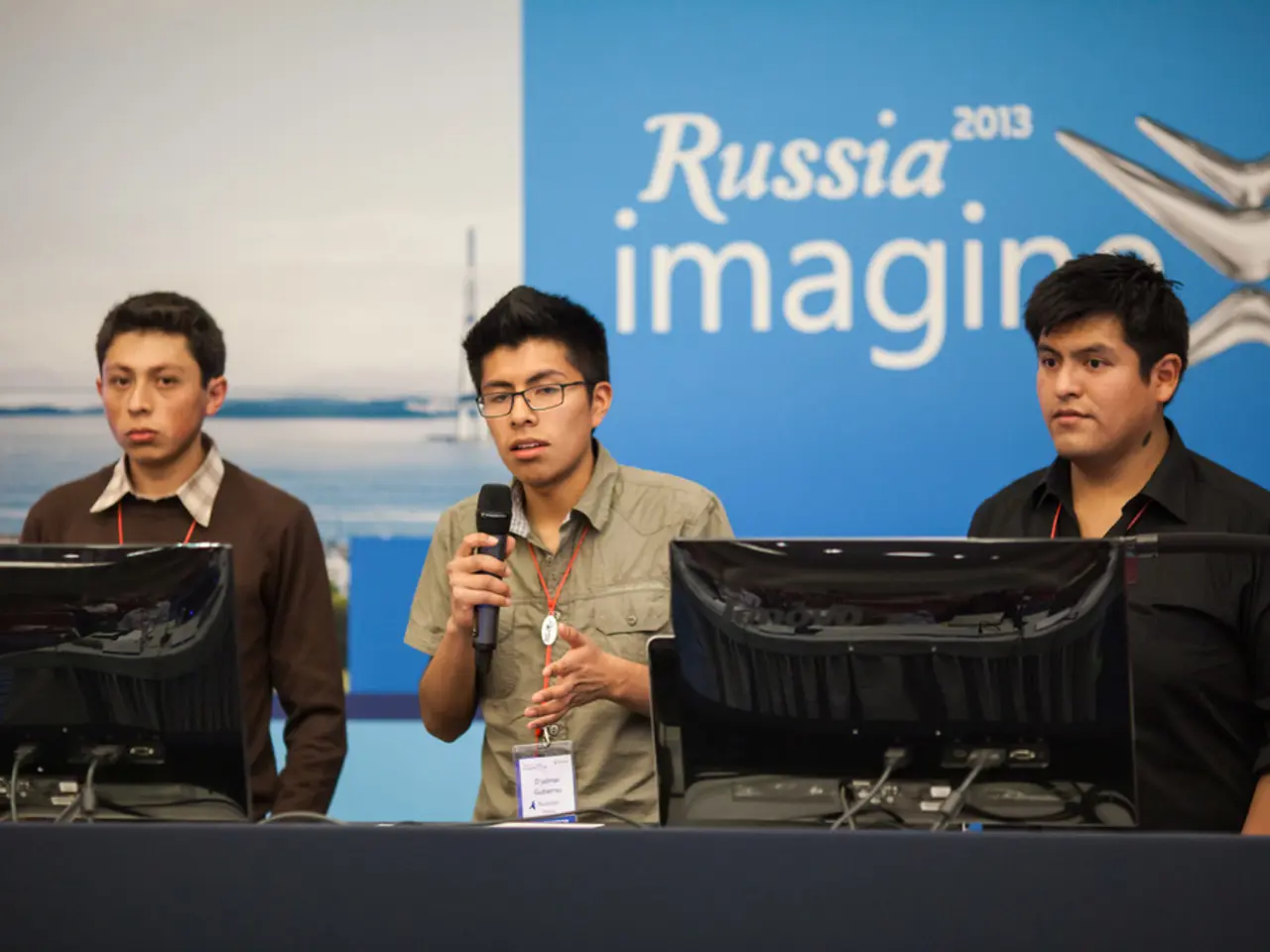UK urged to overcome apprehensions about AI jobs while tech pioneers voice concerns
In the rapidly evolving world of technology, concerns about Artificial Intelligence (AI) causing job losses for white-collar workers, particularly entry-level positions, are gaining traction. Industry experts predict that AI could eliminate up to half of these jobs within the next five years, with a significant impact on sectors like technology, finance, law, and consulting [1][2][3].
The magnitude of this displacement is alarming. Anthropic CEO Dario Amodei and Ford CEO Jim Farley have warned that around 50% of white-collar jobs could be replaced by AI by 2027. This prediction is echoed by estimates suggesting that 300 million full-time jobs worldwide may be affected by AI automation, although many will see transformation rather than complete elimination [1][2][3].
The impact on new graduates and hiring is particularly concerning. Hiring rates of recent graduates at major tech companies have dropped sharply, with new recruits down by about a quarter compared to 2023. This trend underscores the challenges entry-level workers face as companies increasingly adopt AI-first strategies [3].
The nature of automation varies, with the International Monetary Fund classifying jobs into automatable, augmentable, and unaffected by AI. Many white-collar roles involve routine, rule-based tasks that AI can automate, but tasks requiring complex human judgment or social interaction are less vulnerable [1].
Tech leaders and companies are addressing this issue in several ways. Jim Farley emphasizes the importance of skilled trades and urges a pivot in education and workforce development. Dario Amodei calls for companies and governments to stop "sugarcoating" the risks and start facing the reality of widespread displacement [2][3].
Reskilling and upskilling initiatives are another response. Reports stress the urgent need for large-scale reskilling programs, with projections that over 40% of workers will require new skills by 2030 to adapt to AI-driven changes [1].
Some companies, like Shopify, are transitioning toward "AI first" operations, where AI performs a significant portion of work and human roles are justified more rigorously, reflecting a new reality in workforce planning [3].
Microsoft's Satya Nadella and Nvidia's Jensen Huang, along with British Prime Minister Keir Starmer, share similar views about AI's role in relieving humans from administrative tasks, allowing them to focus on "human work" [1][2][3]. However, Sebastian Siemiatkowski, CEO of Swedish fintech unicorn Klarna, has warned about the potential for rapid AI deployment to trigger a recession and has criticized tech leaders for downplaying the consequences of AI on jobs [1][2].
The future of AI will be a hot topic at our upcoming conference in Amsterdam on June 19-20. Tickets for the event are now on sale, and using the code ourwebsiteXMEDIA2025 at checkout will get you 30% off our newsletter [4].
As the debate around AI's impact on jobs continues, one thing is clear: urgent preparation and governance are needed to manage this transition and avoid sleepwalking into economic uncertainty [1][2][3]. AI has already led to job losses in various professions, from translation and customer service to copywriting, paralegal work, data entry, graphic design, and journalism. Even the jobs of AI developers are at risk, creating an ironic twist of fate [1][2].
In the face of these challenges, societal preparation for the effects of AI on jobs is crucial. As Keir Starmer puts it, AI should be embedded throughout the UK economy, but with a focus on ensuring that it benefits everyone and doesn't exacerbate inequality [3].
References: [1] https://www.theguardian.com/technology/2023/mar/01/ai-white-collar-jobs-automation-displacement [2] https://www.cnbc.com/2023/02/28/ai-could-eliminate-up-to-half-of-white-collar-jobs-within-five-years.html [3] https://www.wsj.com/articles/ai-could-eliminate-up-to-half-of-white-collar-jobs-within-five-years-11677309003 [4] https://ourwebsite.com/conference/register
Artificial Intelligence (AI) is predicted to significantly impact various sectors, with AI potentially replacing up to half of white-collar jobs by 2027, as warned by Anthropic CEO Dario Amodei and Ford CEO Jim Farley. Additionally, the development and adoption of technology and AI is causing concerns about job losses for new graduates and entry-level workers, as indicated by the sharp drop in hiring rates at major tech companies.




